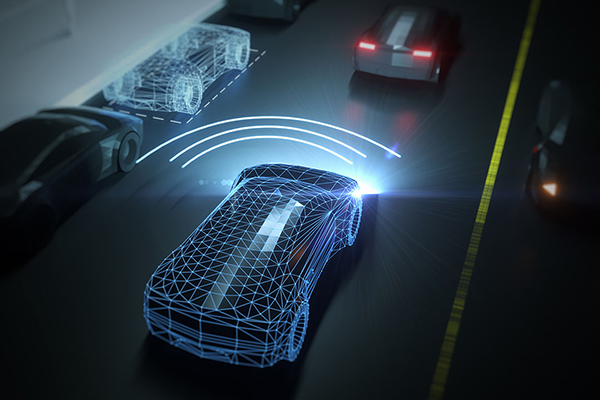AI Transportable technology delivers performance of the data center at the very edge.

Many amazing advances in technology over the last decade have transformed industries, disrupted verticals and created tremendous new market opportunities.
Data has also become one of the most valuable corporate assets. Analytics, artificial intelligence and machine learning can provide a reservoir of actionable intelligence for an organization. Customer buying trends, supply chain flows, and logistics and distribution are just a few areas where insights derived from effective data management and analysis can help give any business a competitive edge.
Data sources, processing and storage is also rapidly evolving. An emerging dynamic industry, Edge Computing, offers a differentiated data solution versus the traditional fixed-asset data center and cloud-based applications, such as offered by Amazon Web Services.
Data volume is also exploding. The World Economic Forum estimates that 463 exabytes of data will be created each day globally by 2025, which would be the equivalent to more than 212.7 million DVDs produced daily. Ironically, the explosion in data is making the DVD storage platform quickly obsolete.
Addressing the surge in data, companies are looking to new technologies that can provide greater storage capacity, as well as support greater data processing and management capabilities.
Edge Computing delivers these advantages by bringing the performance of the data center close to the source generating the data. Sophisticated hardware can bring computing performance and the power of the data center at the transportable Edge for a range of applications, including air travel, logistics, distribution, military and robotics.
At One Stop Systems, innovation capabilities in Artificial Intelligence (AI) Transportable Edge Hardware are also rapidly changing the dynamics of Big Data collection and utilization.
In 2018, only 10 percent of generated data was created and processed on the Edge. It is now expected to soon reach 75 percent, according to Zion Market Research, with this underlining the huge potential growth in this market segment. According to Grand View Research, the Edge market is anticipated to grow at a 38.4 percent compound annual growth rate (CAGR) to $61.14 billion by 2028.
Edge Computing operates in locales as compared to a fixed location. In most cases these are harsh environments with challenging elements of heat, dust, moisture and vibration. Under these adverse conditions, Edge Hardware needs to perform without compromise, and support applicative information, in real-time at the point of data acquisition.
A great example of Edge Computing is a military aircraft flying at 35,000 feet that must function flawlessly under extreme loads, temperatures, and turbulence. This is where Edge Computing hardware and software architectures can be deployed to ensure seamless data acquisition, storage and processing, and provide actionable intelligence delivered by the power of a ‘Data Center in the Sky.’ The technology must be light and compact, while not impacting the performance of the aircraft.
Autonomous vehicles are another area where the need for powerful Edge Computing comes into play. According to Research and Markets, the global autonomous vehicles market generated 1.4 million vehicles in 2019, and this projected to expand at a 40.3 percent CAGR to reach 58 million by 2030.
Given the outlook for so many autonomous cars, trucks and buses on the road, Edge Technology is critically needed to collect, process, learn and act immediately of data streams from multiple sensors. So, a viable autonomous vehicle industry depends on the high performance of a data center delivered at the very Edge.
Many other industries that operate in the field also require Edge Technology, from Agriculture, Mining, Oil & Gas, to Healthcare, Security, Media and Entertainment. Edge Technology can integrate with industrial applications, distribution, logistics and a myriad of other verticals that demand AI, and cannot wait for the conventional cloud.
The business case for such AI Transportables is straightforward; a more effective and efficient utilization of data to create synergies in revenue generation and cost containment protocols. As data streams accelerate and companies expand their ecosystems, Edge innovation will assume a greater role in the collection, dissemination and analysis of localized knowledge pools. As companies evolve their strategic growth initiatives, executives will increasingly rely on Edge Computing to unlock value throughout their enterprise.

David Raun has more than 24 years of experience at senior management and board levels in public and private companies including over 10 M&A/fund raising events. He assumed the role of CEO at One Stop Systems in 2020. Mr. Raun holds a B.S. in computer and electrical engineering from University of California, Santa Barbara.
Contact:
One Stop Systems
Toll Free: +1 (877) 438-2724
Scott Ellyson, CEO of East West Manufacturing, brings decades of global manufacturing and supply chain leadership to the conversation. In this episode, he shares practical insights on scaling operations, navigating complexity, and building resilient manufacturing networks in an increasingly connected world.